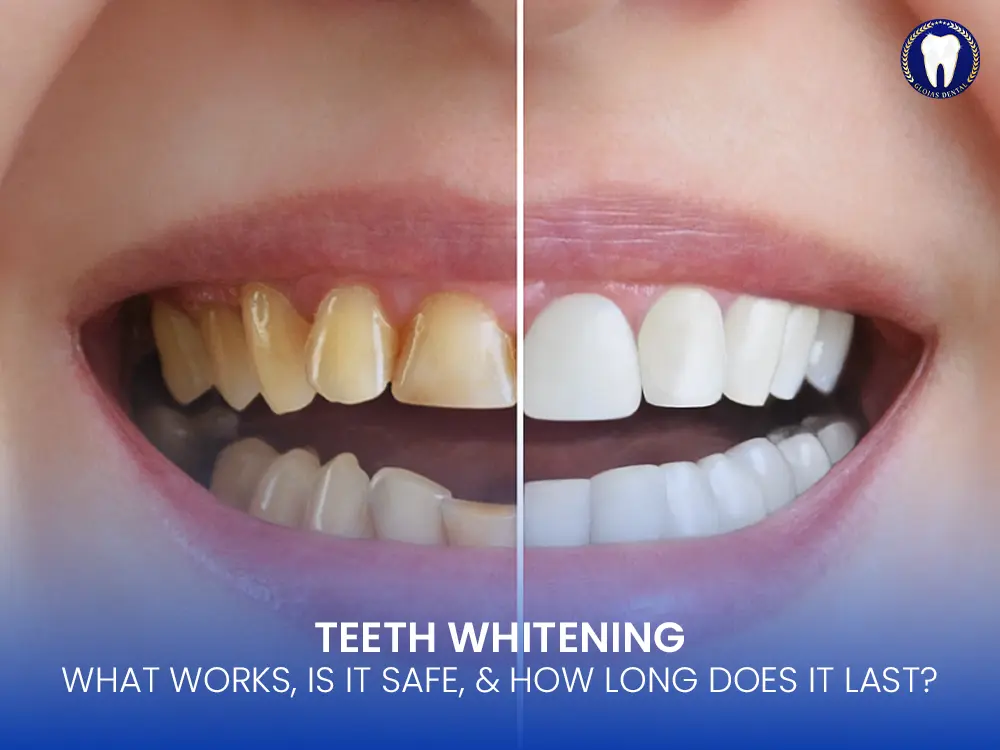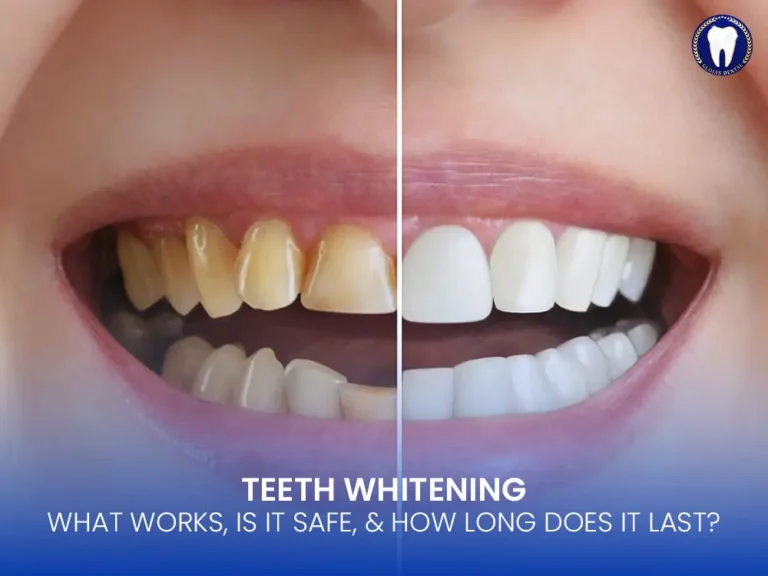Teeth whitening is one of the most popular cosmetic dental treatments for restoring a bright, white smile. Whether it’s from coffee, smoking, or age-related staining, discoloration affects almost everyone over time.
In this blog, we explain the different whitening methods, how safe they are, and how to keep your teeth whiter for longer—with expert insights from dental professionals.
What Is Teeth Whitening?

Teeth whitening is a cosmetic dental procedure that removes stains and lightens the natural color of your teeth. It does not remove enamel but breaks down pigment molecules that cause yellowing or discoloration.
It typically uses hydrogen peroxide or carbamide peroxide as the active ingredient to penetrate the enamel and lift deep stains.
Common Causes of Tooth Discoloration
Coffee, tea, and red wine
Tobacco use (smoking or chewing)
Poor oral hygiene
Aging and thinning enamel
Certain medications (e.g., tetracycline)
Genetics or trauma to the tooth
Types of Teeth Whitening Treatments
| Whitening Method | Description & Results |
|---|---|
| In-Office Whitening | Performed by a dentist using high-strength gel & LED/laser light. Results in 1 session. |
| Take-Home Kits | Custom trays provided by a dentist. Whiten gradually over 1–2 weeks. |
| Over-the-Counter | Whitening strips, pens, or gels. Mild strength and slower results. |
| Whitening Toothpaste | Removes surface stains only—not true whitening. |
Is Teeth Whitening Safe?
Yes—when performed by a qualified dentist or with dental supervision, whitening is safe and effective. Some people may experience:
Temporary tooth sensitivity
Gum irritation if gel touches soft tissue
Mild discomfort after in-office sessions
These side effects are usually short-term and can be managed with sensitive toothpaste or by spacing out treatments.
How Long Do Results Last?
Whitening results can last 6 months to 2 years, depending on:
Your diet and lifestyle
Oral hygiene routine
Smoking or staining habits
Maintenance with whitening toothpaste or touch-ups
Tips to Maintain Whiter Teeth
Avoid staining foods and drinks for 48 hours post-treatment
Rinse mouth after meals
Use a straw for coffee, tea, or wine
Brush twice daily and floss
Schedule touch-up treatments every 6–12 months
🧠 5 Frequently Asked Questions (FAQs)
1. Is teeth whitening permanent?
No. Whitening fades over time due to diet and habits. Maintenance is required for lasting results.
2. Can sensitive teeth be whitened?
Yes, but choose low-sensitivity formulas or consult your dentist for safe options.
3. Does whitening damage enamel?
No. Approved whitening agents penetrate the enamel without eroding or weakening it when used correctly.
4. Is there a natural way to whiten teeth?
While baking soda or oil pulling may help with surface stains, they are not as effective or safe as dentist-recommended treatments.
5. Who shouldn’t do teeth whitening?
Pregnant or breastfeeding women, children under 16, or anyone with untreated cavities or gum disease should wait or consult a dentist first.
